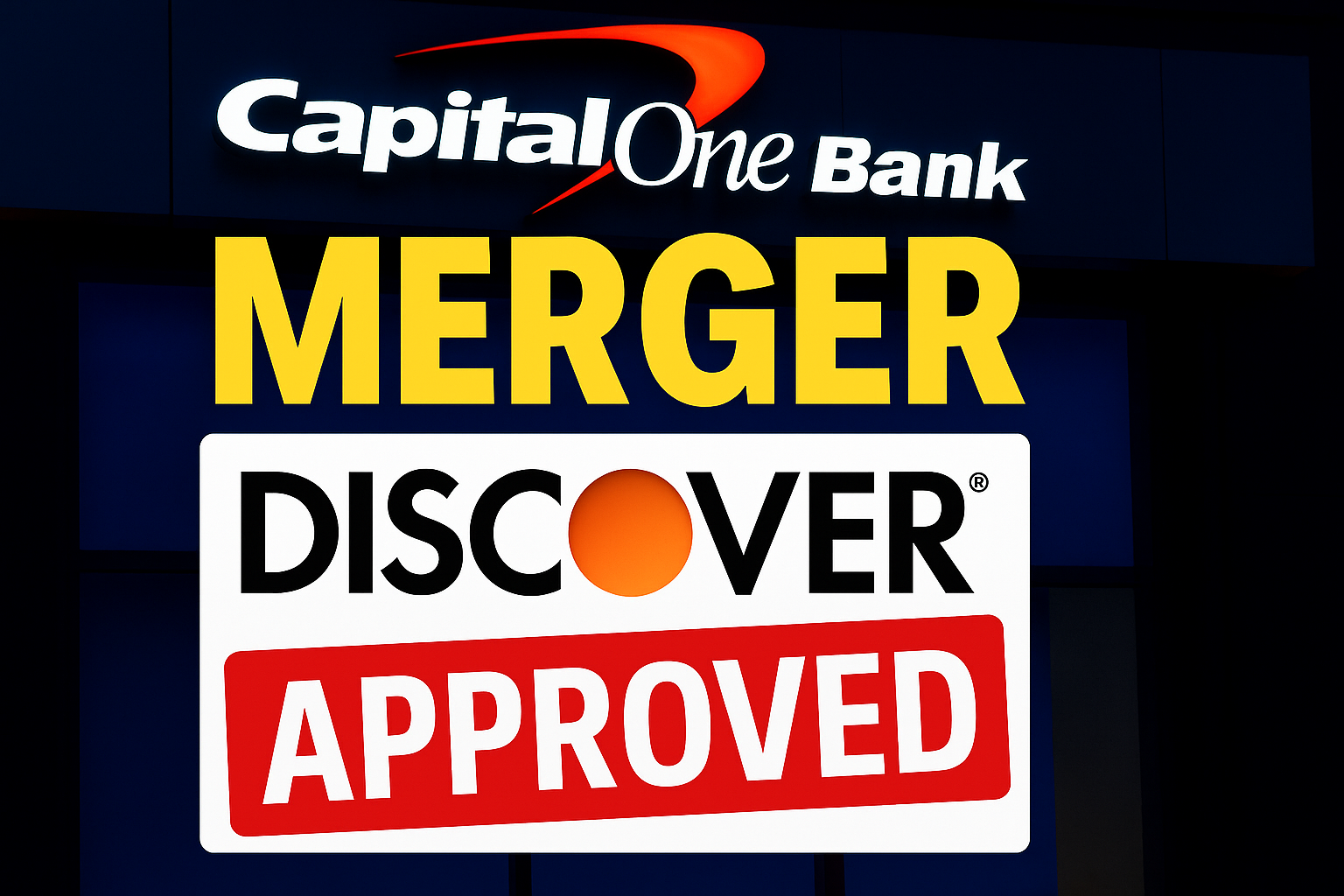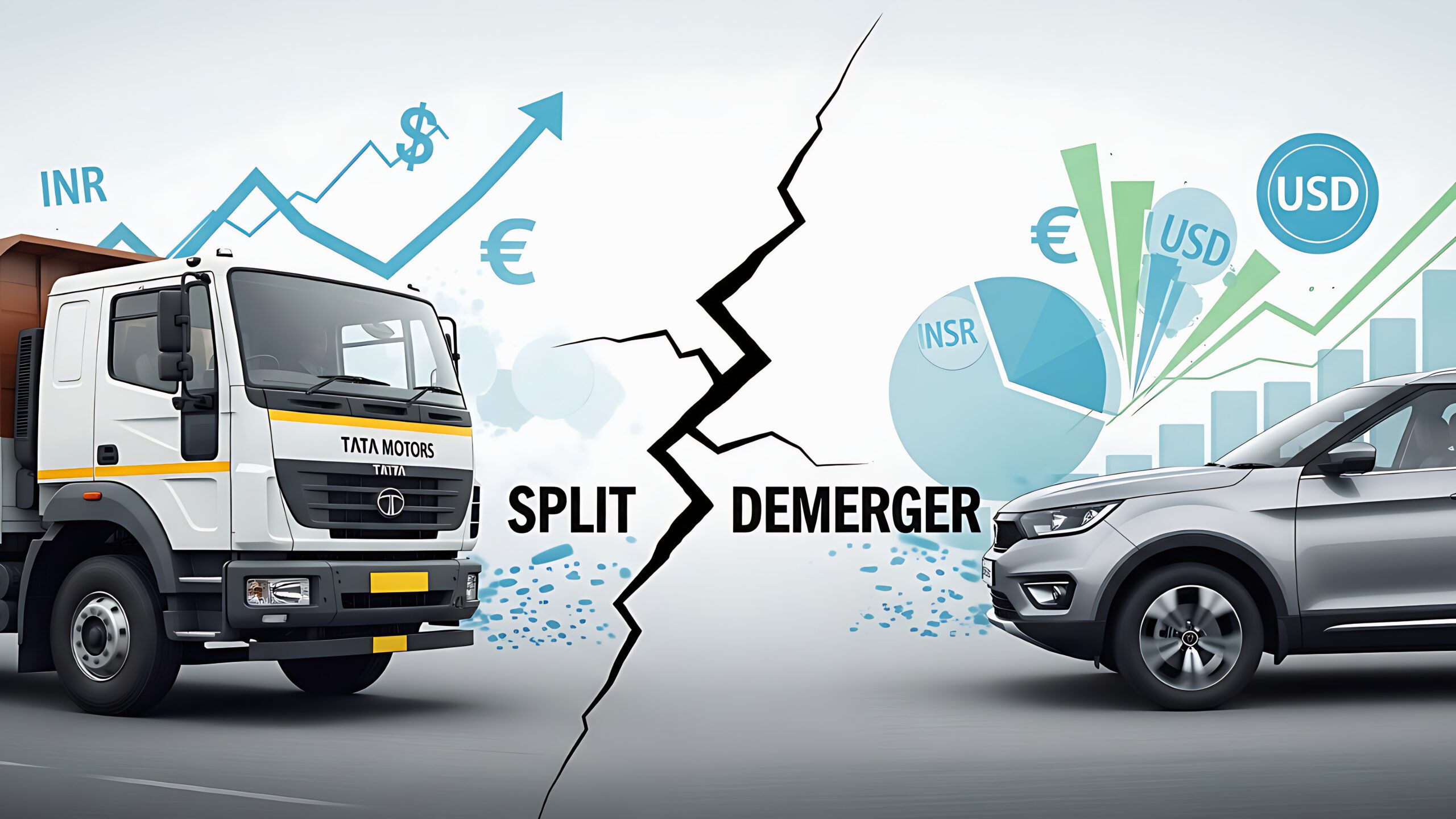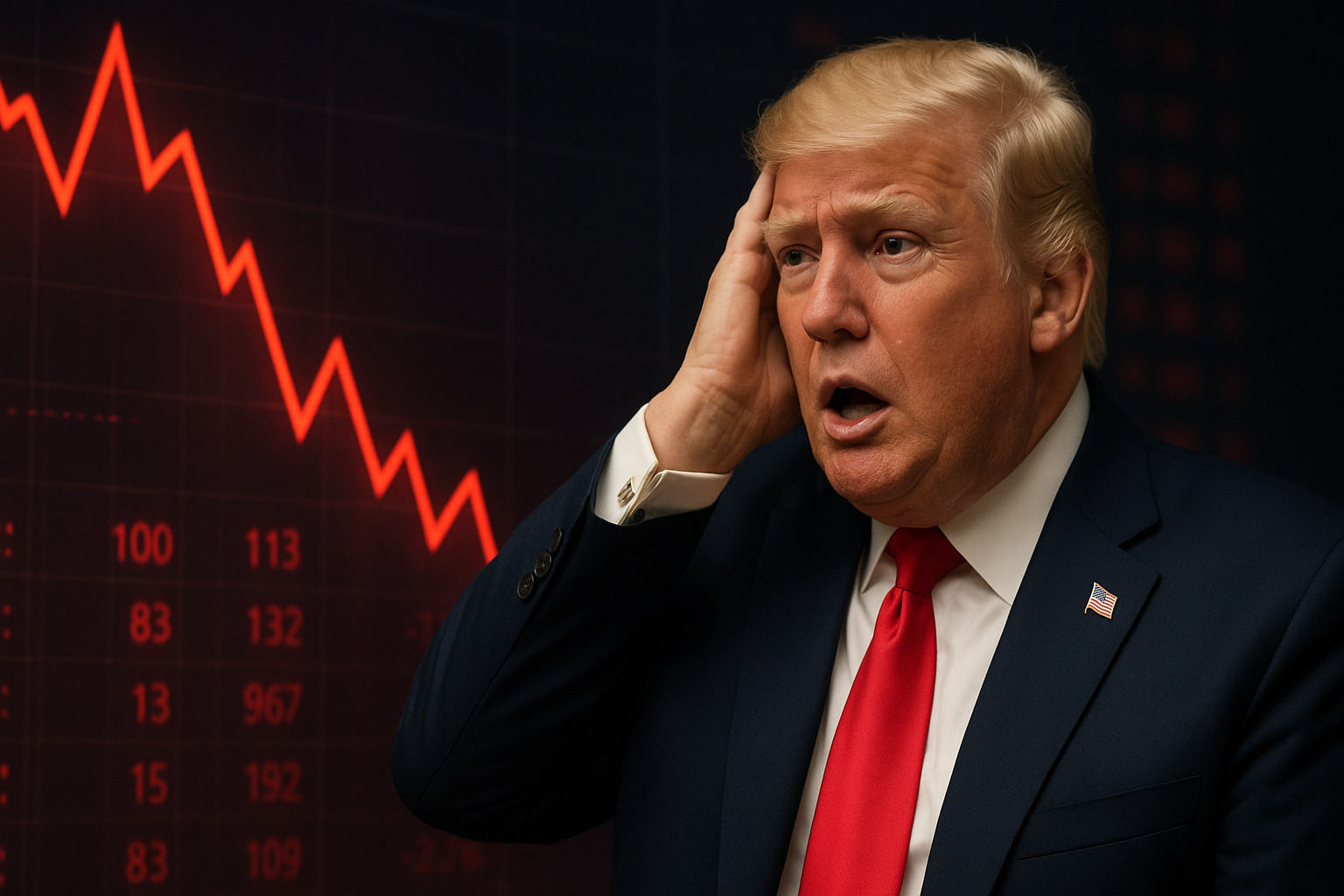Capital One and Discover Merger Approved: Here’s What It Means for Credit Card Users and the Industry

Approved Capital One and Discover Merger What it means for Credit Card Holders
Capital One-Discover Merger Overveiw
On April 18, 2025, Capital One received greenlight from major US regulators to acquire Discover Financial Services in an all stock deal worth an estimated $35 billion. The deal was put forth in February 2024 and came to an agreement last month. Cap One now waits on approvals from:
- Federal Reserve Board
- Office of the Comptroller of the Currency (OCC)
- Department of Justice (DOJ)
Expected closing date of the deal is set for May 18, 2025.
The New Power House of Credit Cards
This gives Capital One the execlusive power to issue credit cards. Allowing them to overcome other companies like JPMorgan Chase, Bank of America, and Citigroup. Most importantly, the merger allows Cap One to directly utilize Discover’s payment systems, unlike all other banks that depend on Visa or Mastercard.
Quick Facts:
- Capital One: Holds more than 100 million customers and total assets of $490 billion.
- Discover: Has approximately 305 million cardholders on its payment network.
- Combined: Capital One can now monopolize one third of the subprime credit card market.
Regulatory Conditions and Penalties
Although the deal was approved at the federal level, some restrictions had to be issued:
- The OCC required Capital One to formulate a remediation plan to resolve any outstanding enforcement actions related to Discover.
- The Federal Reserve also charged Discover $100 million for interstate fee grossly inflating interchange fees from 2007 to 2023.
- DOJ examined the proposed mergers for glaring antitrust issues and found no compelling reasons to halt the transaction.
The Statements Offered
Capital One’s CEO, Richard Fairbank, thanked the regulators by saying:
“We appreciate the thoughtful and diligent engagement of our regulators as they thoroughly reviewed this deal over the past 14 months.”
Discover’s Interim CEO, Michael Shepherd, highlighted how the deal could foster innovation and increase customer value:
“This merger will increase competition in payment networks, improve product offerings, and bring meaningful community benefits.”
What Capitol One and Discover have said shows Innovation
As per Capital One, customer accounts will not undergo immediate changes. However, there is a divided opinion among analysts and advocates regarding the forward-looking impact.
Expected Positive Outcomes:
- Increased Acceptance of Merchant Services for Discover Card Holders
- Better Protection with Advancements in Credit Cards
- Stiffened Competition with Visa and Mastercard
Possible Negative Outcomes:
- Increased Interest for Subprime Borrowers
- Reduced Options for Consumers Because of a High Concentrated Market
- Increased Fees for Discover Card Holders
Consumer Advocacy Groups such as NCRC have opposed the merger, stating it would limit competition and hurt pull-credit-score customers.
The Political Front: Policies from Trump to Biden Era
Under President Biden, regulators had reservations about significant mergers between banks. The DOJ even attempted to block the Capital One–Discover merger as they were concerned about its effects on underutilized credit users.
Under the new Trump administration, regulators adopted a more favorable attitude toward mergers, which aided the deal’s progress. Following Trump’s 2024 election victory, the share prices of Capital One and Discover surged.
Company Snapshots: The Brief
Capital One:
- Was launched in the 1990s as a spinoff of Contra: Signet Financial Corporation.
- Is located in Tysons, Virginia.
- Famous for their tagline: “What’s in Your Wallet?”
- Controls 20% share of the D.C. banking market.
Discover Financial:
- Developed from Sears’ financial services in the 1980s.
- Became its won financial entity in 2007.
- Runs their own payment network which is rare for most issuers.
Also Read : US Tariffs Impact India: Understanding The Situation and Future Perspectives
Final Thoughts
The merger between Capital One and Discover will set a landmark shift in the United States credit card history. Although this has promising aspects for the payment industry like competition with Visa and Mastercard, they are not the only giants in the market, it has valid concerns toward excessive controls over the market and their forceful impact on consumers.
For now, clients can anticipate operations as usual, but the impact over the long run—on costs, the access to lending services, and interest rates—will become clearer in the coming months and years.

